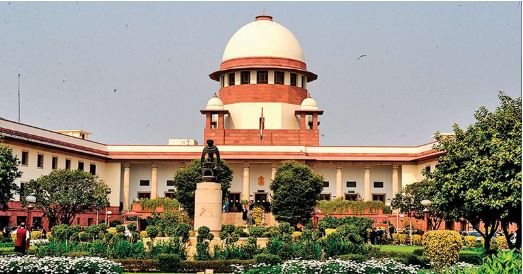The Supreme Court on Monday headed by the bench of Chief Justice of India SA Bobde granted interim protection to a 23-year-old government employee of Maharashtra, accused of repeatedly committing rape on a minor girl in 2014-15. However, what comes as shocking was the series of questions put forth by CJI Bobde, which has ignited public anger.
“Will you marry her?” CJI SA Bobde asked the petitioner’s lawyer when the matter was taken up for hearing whilst further suggesting, “You should have thought before seducing and raping the young girl. You knew you are a government servant.”
To which Advocate Anand Dilip Langde, the lawyer of the accused replied, “I will take instructions” meaning, he will ask his client and inform the court. When the case was taken again after other matters, the lawyer informed that it was not possible for the accused to marry her as the petitioner had married someone else. The lawyer added that the petitioner initially wanted to marry her but she refused.
The bench, also comprising Justices A.S. Bopanna and V. Ramasubramanian, then granted him interim protection from arrest for four weeks, allowing him time to file for regular bail.
Speaking to The Print, Senior Advocate Meenakshi Arora said that the Supreme Court shouldn’t have made such an observation about marriage.
She said, “I don’t think they were warranted…I don’t think it should’ve been suggested to the victim.”
“The offence is rape and will still not go away. That’s an offence in rem, it is against the State and the public. Marrying the victim of rape does not take away from the offence,” added Arora.
Considering the age of the girl and the rape accused and the observation of the Supreme Court, she added, “The legislature really needs to revisit this area of consenting intercourse with a minor, who is at the borderline…The law should look at consensual acts between young people and particularly where the girl may not be 18 but capable enough to make a decision. The law does not leave any room with the judge, that’s the problem.”
The victim was dissuaded by the accused’s mother of filing the case
The accused Mohit Subhash Chavan, a technician with the Maharashtra State Electric Production Company had reached the SC after his petition of anticipatory bail was quashed by the Bombay High Court, earlier granted by the sessions court.
The case dates back to the year 2014-15 when both the parties were minor. Being distant relatives, Mohit used to visit the girl’s house frequently. However, the victim has alleged that once while her parents were out of town, Chavan, clandestinely entered her house from a backside door and committed rape on her.
He allegedly gagged the victim’s mouth and tied her hands and legs. And thus ensued a series of rapes as the accused threatened of throwing acid on the victim’s face, if she ever went to the police. It is also being alleged that the victim was earlier dissuaded to file the case by the perpetrator’s mother after she assured the girl that her son (accused) would marry her.
The accused’s mother had also dishonestly got the illiterate mother of the victim to sign a stamp paper which stated that there was an affair between the two and with her consent, they both had indulged in sex.
Five years after the incident in 2019, an FIR was finally lodged against Mohit under Sections 376, 417, 506 of the Indian Penal Code and under Sections 4 and 12 of the Protection of Children from Sexual Offences Act, 2012 (POSCO Act) by the girl.
Lately, POSCO Act has been a flesh in the thorn for the courts of the country as the interpretation of the law has been vague and at times insensitive. Recently, a 25-year-old man accused of raping and impregnating a 16-year-old girl was granted bail after he expressed willingness to marry the minor girl.
However, this time around, there was no ambiguity and yet the courts decided to take a rather insensitive approach in dealing with the matter. The perplexing observation by the SC leaves a layman confused as to how any crime and specifically ‘rape’ can be allowed to slide by if the perpetrator agrees to marry the girl.
The intricacies of the law are best left to the domain experts to argue but the optics of the decision do not look good and when the courts are battling the perception battle amongst the public, such decisions do not make their case any stronger.
